This piece is part of the Vying for Talent project, a joint Brookings-CSIS project to examine the role human talent plays in the sprawling competition between China and the United States. The original interview was edited for brevity.
Yangyang Cheng is a research scholar in law and fellow at Yale Law School’s Paul Tsai China Center. Before joining Yale, she worked on the Large Hadron Collider for more than a decade and was a postdoctoral research associate at Cornell University and a researcher at Fermi National Accelerator Laboratory. Born and raised in China, Cheng received her Ph.D. in Physics from the University of Chicago in 2015, and her Bachelor’s in Science from the University of Science and Technology of China’s School for the Gifted Young. She is an expert on science policy and Chinese politics. In an interview with CSIS Freeman Chair Jude Blanchette and Brookings Senior Fellow Ryan Hass, the three discussed the role of science in U.S.-China relations and the need to examine who benefits and who experiences harm from advances in scientific inquiry.
BLANCHETTE: Before we start exploring your current interests and research trajectory, tell us a bit about where you came from, where you grew up, and what life was like then and there?
CHENG: I was born and raised in Hefei, Anhui Province. There were remnants of planned economies that I saw, like my parents saving up food coupons in the late eighties in anticipation of my birth, and then later in the late nineties to early 2000s, the layoffs from state-owned enterprises. Then later on throughout the 2000s, the entire city was dug up for commercial and other types of developments. Since I left the city in 2009, it has tripled and quadrupled in size. Hefei also is a city with a long history. Historically, it was famous for a few battlegrounds, and then in 1970, the University of Science and Technology of China moved from Beijing to Hefei during the Cultural Revolution. That was where I went to school.
HASS: You chose to leave to come to the United States for graduate school. What factors caused you to decide to come to the United States?
CHENG: The personal circumstances of my upbringing gave me this intense urge to leave as a way to survive. At a young age, before I knew what I wanted to do, I thought I needed to get out and get away. I saw United States as a place where I could potentially both live a free life, but also find myself. And as I grew up, I realized that science could create this clear pathway. It’s narrow, but it’s well-traveled.
I happened to be very fortunate in the sense that I was very good at the educational system in China. I could see science as a viable path. So that’s why I came to the U.S. at a rather early age. And I’m grateful for science giving me this opportunity to come.
HASS: There has been in recent years a phenomenon of securitization, the idea that non-security issues increasingly are becoming viewed through a security lens. And it feels like this is a trend that is occurring in both China and the United States. There appears to be a certain degree of limiting academic freedoms in China. And there’s also rising national security concerns in the United States around foreign research that is being done on American campuses and in American laboratories. So, how do you see this these dual trends impacting the flow of top Chinese talent traveling to United States, researching in the United States and elsewhere around the world?
CHENG: I think it is always important to realize that science, even though it may espouse certain cosmopolitan ideals, as a human endeavor and as a primarily government-funded human endeavor after World War II, is an inherently political process.
Someone a generation younger than myself may aspire to certain careers in the U.S. And this is actually a question I’ve asked myself a lot, and I think I wrote about it in an essay for Wired magazine earlier this year, that had I been ten or 15 years younger, would I still have aspired to come to the U.S. as a scientist? And I say it very frankly in the article, I’ve asked myself this question so many times, and I do not have an answer because I knew that if the circumstances of my upbringing were still similar, because they were intensely personal circumstances, I may still have this urge to leave.
On the other hand, as an individual we need to contend with the conditions that are available to us. Of course, me choosing to become a physicist was also a choice out of circumstance. As a young child, I was interested in a lot of disciplines, but I realized at a very young age that I couldn’t pursue a legal career in the country without the rule of law, become a journalist in the country without free expression. So, the pursuit in the natural sciences was one of the few pathways that I could embark on without compromise.
In the current circumstances, if the door is closed or closing, it will be very difficult. But then I want to emphasize that this would be an individual loss. The pain is a private matter, and I think it would be inappropriate for any state to appropriate that private loss to fit into certain agendas. And I think it is more important to think about as a matter of national policy what kind of science is being done, what interest is served and who are harmed, what are the guiding ideologies and principles behind it, than to focus on the specifics of which individuals are doing it and where they’re doing it.
BLANCHETTE: How do you think the United States is doing now to attract foreign-born talent to come study and work here?
CHENG: So I’m curious about the use of language here with the words “attract” and “talent.” Who counts as talent? Is the United States trying to attract any person from anywhere? What creates this kind of stratification of labor and ranking of bodies?
I’m always very cautious about framing this issue this way because it assumes two premises: first, there is a certain ranking of individuals by their profession, by their skills in terms of their usefulness to the state or to corporate interests; and the second is the border can act as a tool of state violence and of racial capitalism, to do this ranking of bodies and stratification of labor.
In a moment of planetary disaster with the pandemic and with climate change, with war and internal conflicts, the flow of people is one of the most pressing issues facing the globe today, and a lot of that is correlated with the use of science and its aftermath, so it is important to not divorce science policy and immigration policy with these broader issues.
HASS: Is U.S.-China scientific collaboration net positive for the world? Is it net positive for American people? Is it net positive for Chinese people? And should Americans be concerned about the scale of China’s economic rise? Should that induce caution about U.S.-China scientific collaboration?
CHENG: That is an interesting question, and if I may flip it a bit and say, is science a net positive for the world? And I think that is a question that probably assumes too many things and really cannot be answered with a yes or no response. Science is not net positive, it’s not even neutral, it’s social and it’s political, and it has social and political implications in terms of who benefits and who bears the cost. And that has always been the case for as long as there has been science. And the same applies to cross-border collaborations in science.
When we ask about scientific collaborations, the question is what happens when there is no collaboration? What are the motivations that lead to this erection of a border?
So, the principles and the ideologies that would drive the erection of a border and this kind of enclosure and compartmentalization of science as a strategic asset for the state has very profound implications on what type of scientific work is being pursued, what kind of scientific agendas are being prioritized. And that has much more profound implications on not just any country or its people, but on humanity and its future.
BLANCHETTE: There is a sense right now increasingly shared in the United States that scientific collaboration with China is inherently risky, that it comes with significant potential national security costs for the United States, that China will exploit some of the knowledge gained and channel it into some of its abilities that could potentially clash with U.S. interests.
Are there legitimate concerns that Americans might have about what scientific collaboration between the U.S. and China might lead to? As a scientist yourself, how do you assess the merits of some of these concerns that many Americans and American policymakers have that we just need to decouple scientifically from China because it’s too risky?
CHENG: It is interesting that you phrase the question this way with the word “risk.” Risk to who or risk to what? And I think one can very fairly say that a lot of the scientific and technological advancements in its application and its distribution create a lot of risks to actual human beings and their lives and their well-being. But it somehow feels like this is not the focus in terms of how this risk is being assessed here.
I’ll give two types of examples of what I think are the serious concerns with regards to scientific collaborations or educational exchanges between the two countries. The first is in terms of what type of work that is being done. There are certain types of work that can help facilitate, can be utilized by the Chinese state for surveillance, for oppression, for political control, or other forms of exploitation and cause harm. There are scientists in the U.S. who may have collaborated with Chinese state entities in building genetic surveillance banks, contributing to facial surveillance, or other types of biometric surveillance technologies. And that is, of course, harmful. And that is wrong, I think that is fair to say.
However, very importantly, that is wrong not because it is being done in China, or because the government is authoritarian, but the technology itself creates harm. And the nature that there are American scientists who have the ability to collaborate with Chinese entities on these technologies, the more fundamental question is not whether these collaborations should take place, but why this work was being pursued in the first place. Whether it’s a Chinese surveillance firm that sells facial recognition technology, or an Israeli firm, American, European firm, there are people who are harmed in this process.
The second part is in terms of academic freedom and solidarity in the academy and complicity in certain systems. And I think very acutely this question is being presented now because of the Russian invasion of Ukraine. A lot of institutions, including the collaborations on the Large Hadron Collider, are facing this very acute and imminent question of “what do we do about our Russian collaborators, or our collaborations with Russian institutions.” And this has very little to do with what kind of actual work is being pursued, but just the simple collaboration by itself is a form of complicity or a tacit endorsement of the state.
But then, of course, that question is not black and white. For Russian scientists, a lot of them have spoken out at very great professional and personal risk against Putin’s war. And then should they be punished because they happened to be born as Russian citizens in Russia, which is not their choice? But then, should they be forced to choose a life of exile to pursue their scientific work?
And similar questions should be asked about scientific and academic collaborations with China as well, in terms of how it may contribute to certain complicities with the Chinese state abuses and other practices. But again, that should be thought of not as an exclusive Chinese issue, or an issue that’s exclusive to a certain form of government, but as something that is really rooted in who we as a species see what our responsibilities are, whose lives and whose interests we center, and what kind of world we want to live in.
BLANCHETTE: As you look at the discussion around science policy and an increasing focus by the U.S. government on increasing investments in scientific research as geopolitical rivalry with China ramps up, I wanted to ask if you could make an assessment of that. What might you suggest if you were sitting in front of a policymaker about where they should or should not be deploying a marginal dollar to put into science?
CHENG: If we look at the history of science funding in the U.S.—of course for a long time in the 19th century to the early 20th century, a lot of that is a philanthropy-driven because of the robber barons, they founded universities and they funded particular types of research, including some of the space projects out of their individual interests as a way to leave a legacy. Then the U.S. government became the primary funder of science and scientific research out of the context of war.
A lot of the disciplines, including semiconductor technology, including radar technology, a lot of that that was born out of wartime research, out of our research explicitly for certain security and weaponization purposes.
And that lays the foundation for how the laboratories are funded, how the groups are managed, but also in terms of how the textbooks are written, because professors write textbooks based on what they know, and these textbooks are passed on through generations.
If I am sitting across the table with a policymaker who is asking how they should fund science policy, I think it is very important to shift this mindset from one of scarcity, of quote unquote competition, to one of abundance and care that is not about crushing a rival, but about how we can come together for a collective flourishing.
But, very importantly, I do not think individual conversations are what is going to shift power, shift the needle in terms of policy. Power does not yield power without pressure. And so it’s not about an individual academic convincing a policymaker, but rather about how academia, how tech workers, how labor sectors in different ways can collectively organize and shift this uneven terrain of power, to act as a check on and contestation over harmful branches of state power.
Scientific development is not universally good. Progress is not some kind of uniform direction, like the arrow of time or the second law of thermodynamics.
And science is not even neutral. What is really important is instead of being bound by this kind of mentality of constant expansion and acceleration, to really think about what is being done and who benefits. Where the concentration of interest and power is flowing to and who are neglected and who are actively harmed and who are impacted in this process.
And this is the fundamental, most important question, most important principle that should be guiding scientific development and science policies in any country and under any political system, with also the understanding that any kind of harm cannot be contained within an artificial enclosure like that of a political border.
BLANCHETTE: Ryan and I knew by inviting you on we would get a really interesting and probing discussion, and we certainly got that and appreciate your ability to think outside of the normal bounds of discourse.
CHENG: Thanks for having me for this conversation.
The Brookings Institution is committed to quality, independence, and impact.
We are supported by a diverse array of funders. In line with our values and policies, each Brookings publication represents the sole views of its author(s).
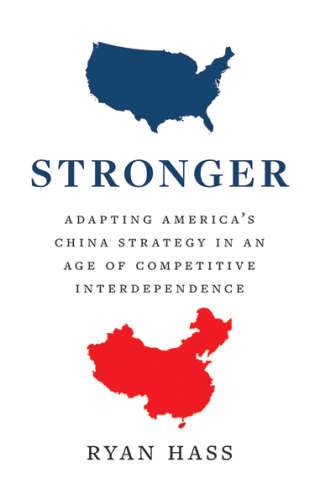
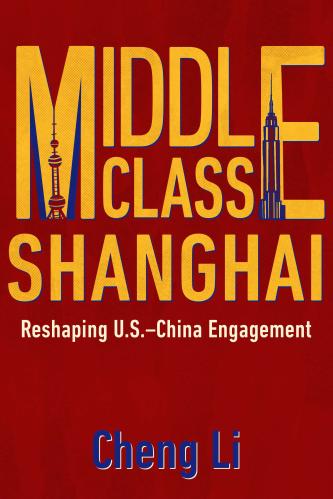
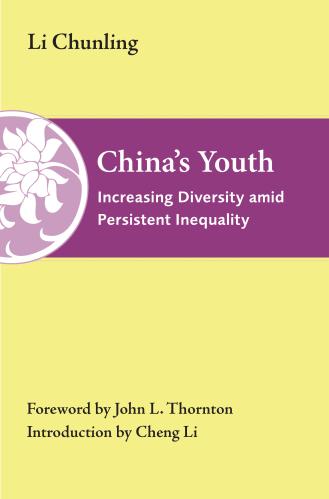
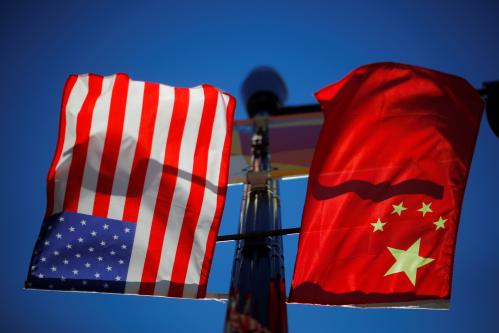

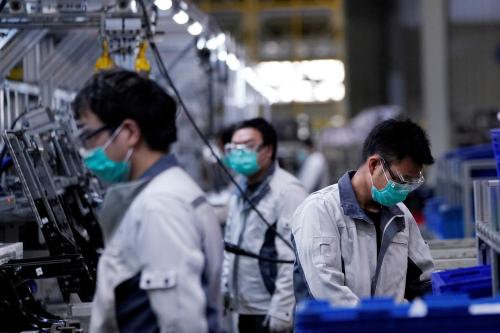
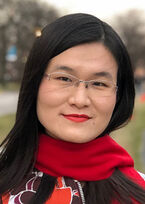

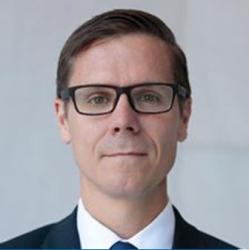

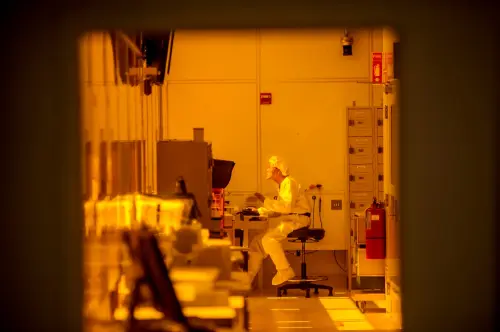

Commentary
Looking beyond borders to understand impacts of science on society
An interview with Yangyang Cheng
May 23, 2022